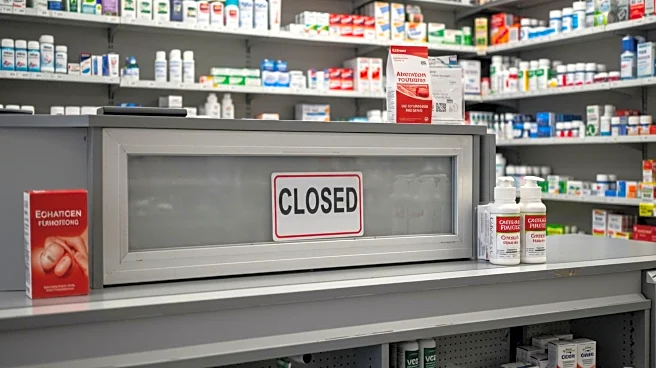What's Happening?
Costco has announced it will not sell mifepristone, a key abortion pill, at its pharmacies following pressure from conservative groups. The decision marks a significant moment in the ongoing debate over medication abortion access in the United States. Mifepristone is part of a two-step regimen for medication abortion, which is often preferred for its ease and cost-effectiveness compared to surgical procedures. Despite the decision, medication abortion remains accessible in all 50 states due to laws allowing remote prescription and mailing of the pills. Costco cited a lack of demand from its members and patients as the reason for its decision, although it faced pressure from both sides of the issue, including investors and advocacy groups.
Why It's Important?
Costco's decision not to sell mifepristone reflects the broader national debate over abortion rights and access. This move is seen as a victory for anti-abortion advocates, who have been working to limit access to abortion medication. The decision could influence other major retailers considering whether to dispense the pill, potentially affecting access for women across the country. The issue also highlights the intersection of corporate decision-making and political controversies, as companies navigate shareholder interests and public policy pressures. The outcome may impact the availability of medication abortion, particularly in states with restrictive abortion laws.
What's Next?
The decision by Costco may prompt other companies to reconsider their stance on selling mifepristone. Kroger is currently reviewing FDA requirements, while Walmart and other retailers have yet to comment. The ongoing pressure from conservative groups and investors could lead to further corporate decisions that impact access to abortion medication. Additionally, the legal and political landscape surrounding abortion rights continues to evolve, with potential implications for both corporate policies and public access to reproductive healthcare.









